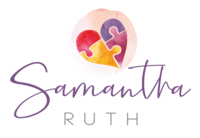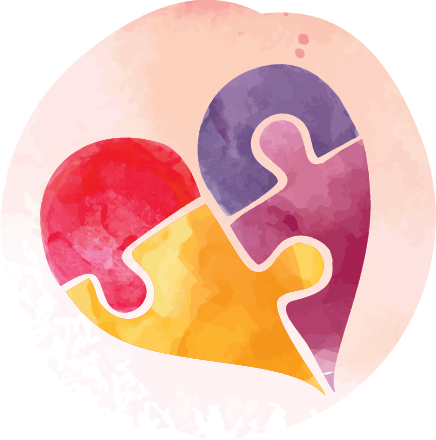Press











ABOUT Sam
SERVICES
Team Ruthless
EVENTS
GRIEFHAB™
PODCAST
RETREATS
shop
HEALING TOGETHER THROUGH THE HOLIDAYS - MAIN EVENT
HEALING TOGETHER - FOR A CAUSE: VIRTUALLY
HEALING TOGETHER - FOR A CAUSE: PILATES IN THE PARK - MICHIGAN
HEALING TOGETHER - FOR A CAUSE: VISIBLE - COLORADO
September 6-7
Jimtember Virtual Jubilee
blog
December 2nd - 8th / Metro Detroit AND VIRTUALLY
August 27th & 28th
August 30-31st
rUTHLESS IN THE ROCKIES
TEAM RUTHLESS
THE CONFIDENCE CONFERENCE
mOBILE rECOVERY dAY
Next event: September 10-23rd, Colorado
October 5-6th -
Virtual Event
September 30th, Castle Rock, Colorado
7 Groups Every week Plus Every Holiday
HEALING TOGETHER - FOR A CAUSE: Ride & ROAR - DALLAS
October 11 -12th
Stay Tuned!
FACES OF GRIEF
JOIN US
Stigma’s Surrounding Mental Health & Bullying
December 4, 2019
I’m extremely passionate about ending the stigma surrounding mental health. I believe that sharing our pain candidly, to heal and to help others heal, is a wonderful movement to create positive change and encourage mindfulness in our everyday lives.
Mental Health & Bullying
I wanted to create a safe space for others to be open, to share their pain, and receive support so they know they’re not the only ones. They’re not alone in the world; you’re not alone in the world. So, I created a free Facebook group, Embracing Mental Health, and I posted about it on different social networks to let people know.
A woman on LinkedIn contacted me to say that she doesn’t have Facebook because she was ruthlessly bullied online.
While I would love to say that we live in a consistently loving, judgement free world, we’re still dealing with the toxic epidemic of bullying. A world where someone couldn’t even engage with friends and family online because it’s no longer a safe space for her.
Similarly, a psychiatric nurse in the UK committed suicide. A five-month long investigation determined that it resulted from severe bullying from her colleagues at work. A psychiatric nurse! Someone who helped others deal with mental health issues!
If this tragic event could happen to someone who’s been properly trained to help others deal with mental anguish, what are we to expect from the average person who has no training?
Unfortunately, we don’t teach this stuff in schools, although we should. It’s one of the most toxic issues we face in today’s world. And with technology, there’s not even a reprieve. Kids used to come home from school and be able to escape their bully until the next school day. The internet makes it so that’s not even possible anymore. Bullies have access to someone day and night.
Putting an End to Bullying
So, what are we to do? How can we end bullying? How can we live mindfully? How can we support each other? To quote my dear friend Marissa Cohen, “Break the silence!”
Bullies threaten people to keep them silent. This silence gives them power. We must educate people about speaking up and give them tools that help them to do so. For example, we should always have someone in mind ahead of time who we feel safe talking to. No one has to deal with this alone!
There is a stigma associated with ratting on someone or being a snitch. This gives bullies more power. Turning to someone for support and to expose a problem is the absolute biggest sign of strength. It means we’re being proactive about finding a solution that helps everyone. We need to reward the courage it takes to speak up!
One small act of kindness can mean the world to someone. If you see someone being bullied, show compassion. Speak up for them. Stand with them. Did you know that 1 in 5 students between the ages of 12 and 18 will be bullied in a single school year? Bullying happens all over the world, affecting millions of people, yet it can be tremendously isolating for the person experiencing it. All it takes is one supportive person to save a life or stop the bullying altogether.
Bullying is completely unacceptable, but most people who are being bullied feel guilt, shame, and embarrassment. Again, this gives the bully power. His/her behavior is not a reflection of you, it’s a reflection of them. We need to call attention to their unacceptable behavior rather than accepting this blame ourselves.
Identify your support network, people you trust and will turn to in difficult times. Having a network allows you to get fresh insight and ideas; things you might not have thought of on your own. This can help you deal with your bully and heal from your trauma. No one needs to struggle alone.
The fact of the matter is that bullying is a reality. Instead of idealizing a bully-free world, I intend to educate people about how to deal with bullying. I’m not willing to sit back and hear about more tragedies. I want to do my part to prevent them from happening in the first place.
Prevention begins with conversations: Addressing the issue rather than ignoring it. Drawing attention. Teaching people compassionate ways of coping, for both the bullied and the bully.
This is how we live mindfully to create a better community that supports each other’s healing. We should be aware of how we treat others and try to understand where other people are coming from. When we put ourselves in someone else’s shoes, we develop the insight to communicate empathetically.
This includes compassion for the bully. In most cases, a bully is dealing with his/her own internal struggles. They may have been bullied themselves or they may not have been taught different ways of coping with anger, frustration, or shame.
I don’t condone bullying behavior, but if we want to help heal the world, we must acknowledge that bullies are people too. They weaponize their pain to try to overcome their own insecurities and traumas. It’s time we teach people alternatives for dealing with difficult emotions, rather than rejecting them.
For me, living mindfully means raising awareness for the sake of others. It means being a voice for those who can’t find theirs. You can give hope and help others heal by creating conscious conversations. It’s as simple as that.
Leave a Reply Cancel reply
120 E. Front St. Loft 2 Traverse City MI 49684 &
77 Monroe Center St Ste 600 Grand Rapids MI 49503
phone : +1 (231)707-0707


Donate TO GRIEFHAB™
Donate today to help make our events and services free for everyone.
You can also donate directly to support a specific client in need.
four
three
info & Investment
two
THE FOUNDER
one
fIVE
GRAB A COPY OF MY
BOOKS & MERCHANDISE
four
three
info & Investment
two
THE FOUNDER
one


fIVE
GRAB A COPY OF MY
BOOKS & MERCHANDISE










HEALING TOGETHER EVENT
EVENTS
four
three
info & Investment
two
THE FOUNDER
one
fIVE
GRAB A COPY OF MY
BOOKS & MERCHANDISE
four
three
info & Investment
two
THE FOUNDER
one





fIVE
GRAB A COPY OF MY
BOOKS & MERCHANDISE










FACEBOOK FAMILY
GRIEFHAB™ SERVICES
FACES OF GRIEF
Our Press Features
THE BE RUTHLESS SHOW
two
three
Recent Articles
one





Coming in September! Stay Tuned.
December 2nd -8th / Metro Detroit AND VIRTUALLY
August 25th
August 30-31st
October 11 -12th
Stay Tuned!










four
three
info & Investment
two
THE FOUNDER
one





fIVE
GRAB A COPY OF MY
BOOKS & MERCHANDISE
four
three
info & Investment
two
THE FOUNDER
one





fIVE
GRAB A COPY OF MY
BOOKS & MERCHANDISE










[…] pretty passionate about this. In my last blog, Stigma’s Surrounding Mental Health & Bullying, I talked about breaking the silence. In a recent radio interview, I also mentioned the importance […]